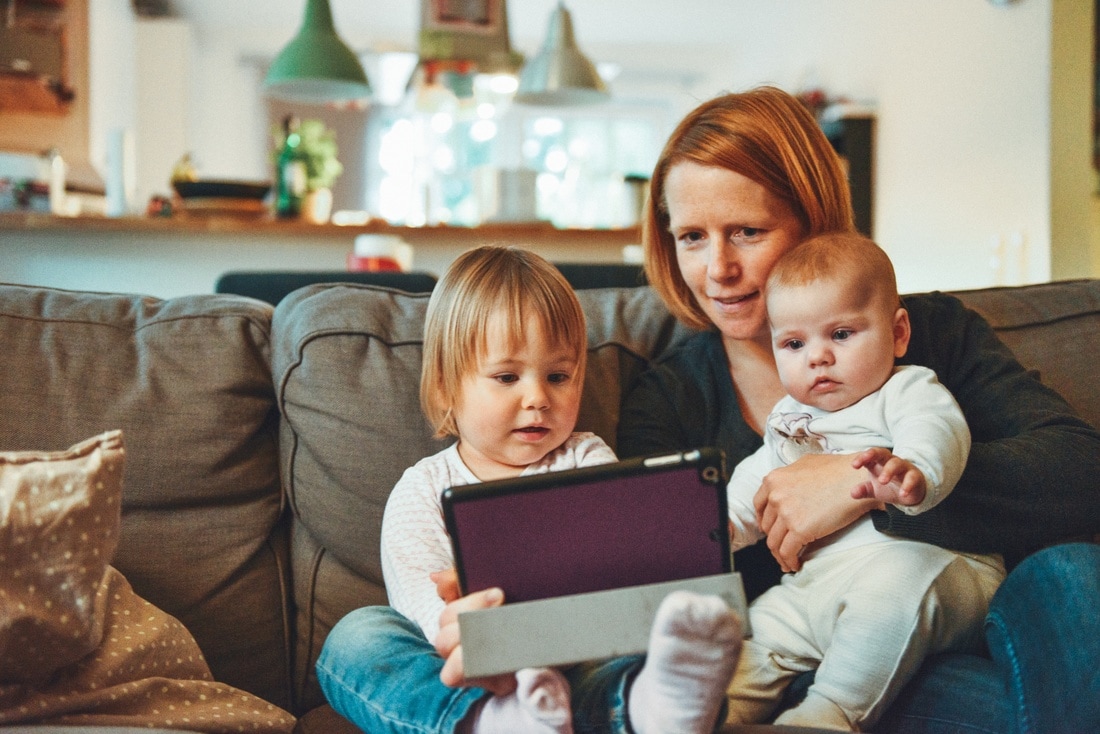 Whenever I hand my child a screen, I feel like the timer starts NOW. I don’t want to give him too much time, but this is the tech age – it will always be a part of his life. And I really need a minute to get this one thing done real quick, or enjoy a meal without having to shove it down, or have a minute to myself when I don’t have to have my parenting hat on. If this sounds like you, read on. Because of the area we live in -- steeped in tech employers – you may think it’s important for children to have hands-on exposure to tech so they can learn the skills to get a job in technology down the road. But what kind of skills is your child getting from watching YOU TUBE for three hours? I’m going to drop some realism on you right now: Screen time is the number one reason why your kids don’t spend time outdoors. And screen time is TOTAL screen time; from the time you handed the phone to your child while you shopped in the grocery story, to the time they watched an educational video on the iPad. Anytime small eyeballs are on a screen equals Screen Time. The American Academy of Pediatrics (AAP) suggests that children and teens have no more than one to two hours of screen time per day. Children under the age of two should have no screen time at all. And here’s a little trivia for you: Steve Jobs, the father of modern technology and mobile screens, didn’t allow his own children to use the iPad and limited their technology use in general. WHAT TO DO ABOUT SCREEN TIME It’s great to have goals, but when reality sets in, we can only do our best. And situations do arise when screen time is needed (for educational research) and enjoyed (family movie night.) Here are some ways you can aim for shortened (or no) screen times and teach your child how to develop a healthy relationship with technology: * Walk the walk. I once saw a mother scold her child as they sat in a doctor’s waiting room, “No, you cannot have my phone!” she said and then proceed to swipe open Facebook herself. See the irony? Children do what they see done; if they see you continually on your phone, they will be on theirs (if they have one.) But if they see you reading in the waiting room, they are more likely to read too. If you are constantly sitting on the couch, they will want to be there too. When you’re bored or have some down time, instead of checking your feed, go for a walk, listen to music, take some extra time making dinner – and invite your child to be right there with you too. - Establish boundaries. If everyone knows the rules, it’s a lot easier to play. Determine what works best for your family and come up with rules together. If you do need 10 minutes to yourself each night, make that time your child’s time to have screen time. But you are sure to fail, be on the receiving end of epic tantrums, if those time rules change from day to day or situation to situation. No one likes to feel like they aren’t getting a fair deal; your child included. - Do something else. As much as screen time may be a part of your child’s everyday life, add in ‘non screen’ activities as a part everyday life. Read a book together, play a board game, do an art project, throw a ball around the backyard even ask them to help you with whatever you ‘need’ to do (help with the laundry, help you wash the car, work in the garden, take them to the grocery store with you and they take the items off the shelf and put them in the cart.) All off these things put off screen time but also build daily life skills they need. * ‘Doors open’ Policy. When your kids are having screen time, set the rules that their door is open and no headphones. That way you can hear what they’re watching, who they’re watching and when they’re watching. You can side step a door open policy by having a common area or room where screen time happens. Keep your computer in the family room, iPads must always be watched on the couch – these rules help prevent content you don’t want your child watching from ever making it to the screen. - Make it a group activity. When your child is playing the latest app he asked you to download, watch him play it and ask questions. Getting involved in your child’s screen time not only gives you a solid understanding of what the game is about (and if it’s appropriate for your child); it evolves screen time into family time. WARNINGS SIGNS: “TOO MUCH SCREEN TIME” It may be time to power down those devices once you observe how screen time affects your child physically, mentally and emotionally. Notice how your child’s normal attitude shifts after she has a small amount of screen time versus a longer amount of time. Some warning signs may be: Behavior changes. Experts says that TV and computer time have “an immediate impact on children.” Take a moment to note your child’s behavior before they take hold of the iPad and after. If you see any aggressive, impatient, selfish, and irritable behavior you may want to scale back the amount of time, limit screen time to weekends or eliminate devices all together. Poor sleep. Screens are a kaleidoscope of continual little flashes of light and constant sound. If you notice your child has a hard time falling asleep or staying asleep, it’s time to make some easy changes. Studies show that beyond the eye stimulus and repetitive noise, just the glow from the screen disrupts sleep patterns. Don’t put a TV in your child’s bedroom and all devices should be kept in one common room location. That way, they can be charged overnight, beeps and sounds won’t wake your child, and you can end the never-ending game we call in my house “Where’d You Put the Charger?” Weight gain. If you’re one of those families who have the TV on all the time, including meal times, it’s time to hit the power button. Not only are TVs conversation stoppers, they also seem to captivate children of all ages. Being distracted while eating can lead to over-eating, or sometimes not eating at all, and neither is a good choice for young bodes. THE BOTTOM LINE ON SCREEN TIME The best advice regarding screen time from a Montessori standpoint is much like the Montessori teaching method itself: Freedom within limits. Children can use the phone, computer or hand held devices; but they must know that there are rules around what they watch and how long they can watch it. Screen time should never be in place of engaging your child in the three-dimensional world they live in. Yes, children should be knowledgeable in technology, but chances are, they are already more tech savvy than you are so there’s nothing to worry about there. But there is everything to worry about when it comes to interpersonal communication, grace and manners, and being OK with quiet time instead not fighting off the next wave of alien invaders. In the Montessori world, we don’t introduce computers into the Early Childhood curriculum at all. In the elementary program, we use computers as a tool for research or teach keyboarding. By the time our MCH students are in third grade, we teach them Internet safety, what they can do to protect themselves and what’s appropriate, what’s not. Montessori is the alternative teaching method that teaches children to be independent, mindful and aware of the world around them. But if they have their face in screen, it’s not so easy to do that.
0 Comments
|
Archives
May 2024
Categories |
|
Montessori Children's House
5003 218th Ave. NE Redmond, WA 98053 Phone: 425-868-7805 [email protected] For Records Requests, please reach out to [email protected]. |
Founded in 1987
|


 RSS Feed
RSS Feed
